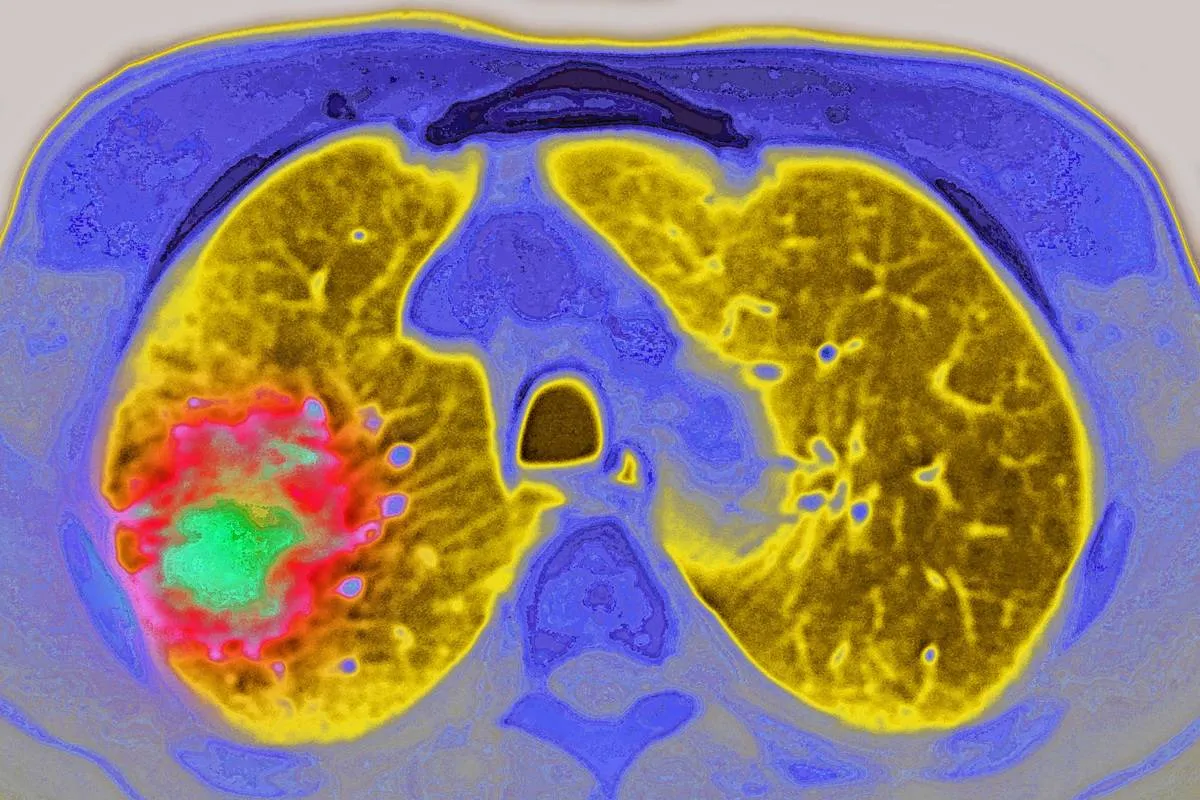Understanding The Early Signs Of Lung Cancer Could Save Your Life
Lung cancer is the number one cause of cancer-related deaths every year and the American Lung Association says only 16 percent of cases are diagnosed during the crucial early stage of the disease.
Understanding the early signs of lung cancer is crucial for improving the chance of recovery. In fact, the American Lung Association says catching lung cancer early can decrease your chance of death by 20 percent. If the condition is caught after 5 years, the chance of survival plummets to just 18.6%.

Who's Most At Risk Of Lung Cancer?
The American Cancer Society considered people with the following criteria to be among the most at-risk groups:
1. People aged 55 to 74 years
2. Current smokers or anyone who has quit within 15 years
3. Anyone with a tobacco smoking history of at least 30-pack years which is based on one pack per day for 30 years, 1.5 packs for 15 years, etc.
Lung Cancer Signs (Early And Advanced Stages)
One of the most challenging aspects of lung cancer is spotting early signs. The American Lung Association notes that many of those signs, such as cough (often with blood), wheezing, chest pain, and weight loss, often don't appear until late-stage lung cancer.
If you are experiencing those symptoms at any time, you should speak to your healthcare provider.
Those pains may include sharp or dull pains in your chest or ribs. You may notice that the pain is more severe when taking heavy breaths.
A common symptom of lung cancer also includes a chronic dry cough that is sometimes followed by an abnormal amount of phlegm and blood.
Another sign can be found in the number of respiratory infections experienced. If you or a loved one experience frequent respiratory infections along with shortness of breath or wheezing, it could be the sign of a bigger issue.
From a whole-body perspective, a loss of appetite and fatigue may also be signs of lung cancer.
Some of the most common issues include swollen lymph nodes, generalized weakness, hoarseness, and chest pressure. How To Reduce Your Chances Of Lung Cancer
While lung cancer can be hard to spot during its early stages and even harder to treat, there are some steps you can take to reduce your chances of being diagnosed.
Start by eating more fruits and vegetables. The American Lung Association through various studies have found that even smokers can reduce their chance of lung cancer by 23 percent simply by eating a diet that's packed full of healthy food choices.
Exercise has also shown to significantly reduce lung cancer and cancer risks in general. This exercise doesn't need to be intense, even a 30-minute brisk daily walk has shown very positive signs.
Quitting smoking has some amazing positive effects. Did you know your lungs will start to shed the damage caused by even years and decades of smoking? The American Cancer Society has revealed that people who quit smoking before the age of 40 are about 90% less likely to die from smoking-related diseases. The organization also says that 15 years after quitting, you have the same chances of developing lung and other cancers as a non-smoker.
Talk To Your Doctor Immediately
As is the case with any potential disease, you should speak to your doctor immediately if you have persistent symptoms that may be associated with lung disease. Even if it's determined that your lung cancer has been persistent for some time, doctors in today's world of advanced medicine have many advanced treatments for stage 1/2/3/4 lung cancer. Hope isn't lost but acting quickly can increase your chances of recovery.
References: TriHealth, American Lung Association, American Cancer Society









